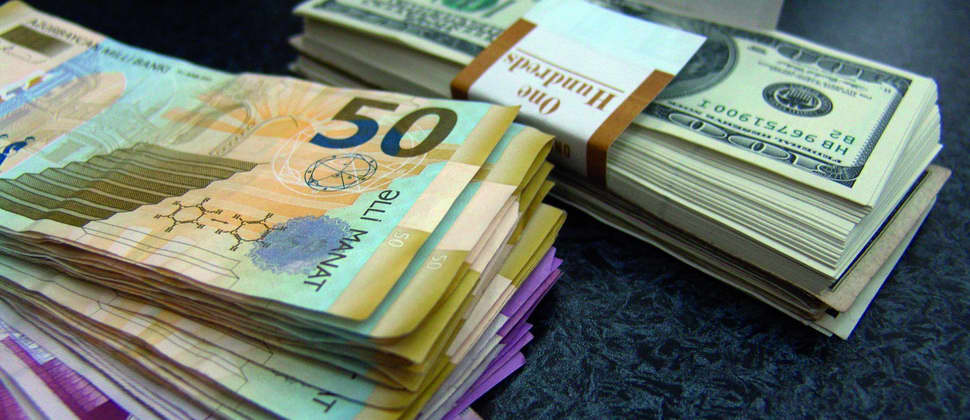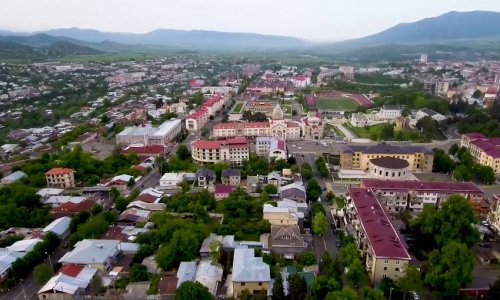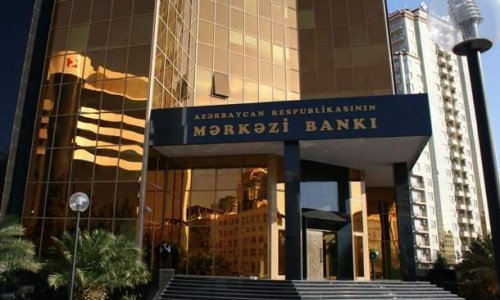Azerbaijan’s manat plunged to the weakest since 1995 after the central bank relinquished control of its exchange rate, the latest crude producer to abandon a currency peg after oil prices slumped to the lowest in 11 years.
The third-biggest oil producer in the former Soviet Union moved to a free float as of Monday to "protect the country’s foreign-exchange reserves at a crucial level to ensure the competitiveness of the economy” amid a barrage of "intensifying external economic shocks,” the central bank said in a statement. The manat, which had one annual drop against the dollar in the past 12 years, was down 33 percent at 1.55 to the dollar as of 1:47 p.m. in the capital, Baku, according to data compiled by Bloomberg.
The Caspian Sea country, which relies on hydrocarbons for more than 90 percent of exports, devalued the manat for the second time this year as the collapse of oil prices heaps pressure on the currencies of petroleum-exporting nations from the Persian Gulf to Nigeria. Azerbaijan has burned through more than half of its central bank reserves to defend the manat after it was allowed to weaken about 25 percent in February as the aftershocks of the economic crisis in Russia rippled through former Kremlin satellites.
"The only real surprise is that they waited so long, blew scarce FX reserves in the process, and thereby undermined the sovereign balance sheet and credibility and confidence in the process,” Timothy Ash, the head of emerging-market strategy at Nomura International Plc. in London, said by e-mail.
Currency, Bonds
The manat has lost almost 50 percent against the dollar this year, the world’s worst performance. The yield on the government’s 2024 dollar bonds slipped 15 basis points to 6.02 percent on Monday, according to data compiled by Bloomberg.
The price of crude has fallen almost 70 percent since June 2014 and is trading at its lowest since July 2004. The Azeri central bank’s reserves was at $6.2 billion at the end of November, down from more than $15 billion a year earlier.
New Era
Slumping crude and the Russian ruble’s collapse are ushering in a new era of volatility for Azerbaijan, which is also beset by challenges ranging from declining oil output to a festering conflict with neighboring Armenia.
The $75 billion economy will grow 1.7 percent next year, down from an estimated 2.8 percent in 2015, Moody’s Investors Service said in a Dec. 4 report. The rating company, which has Azerbaijan at Baa3, its lowest investment grade, predicted the nation’s budget deficit at 9.2 percent of gross domestic product this year and said its debt-to-GDP ratio will "spike” in 2015 from about 11 percent in 2014.
While Azerbaijan’s former Soviet allies Russia and Kazakhstan have moved to floating currency regimes in the past year, the Azeri central bank has questioned whether the country was prepared for a similar shift. Governor Elman Rustamov said there was no need for another devaluation of the manat, according to a televised interview broadcast Sept. 25.
The currency turmoil has prompted an exodus by savers from accounts in the manat, putting more pressure on banks and the foreign-exchange market. In Azerbaijan, the share of foreign-currency deposits reached more than 70 percent in the months after the devaluation, from 51 percent at end-January, according to Fitch Ratings.
Even so, the first devaluation this year shielded the economy and helped the country adapt, according to Moody’s.
"A weaker local currency contributes to the ongoing economic readjustment to lower oil prices by easing the strains from the oil price shock on Azerbaijan’s fiscal and external accounts and making the country’s non-oil exports more price competitive,” the rating company said Dec. 4.
(Bloomberg)
www.ann.az
Follow us !











